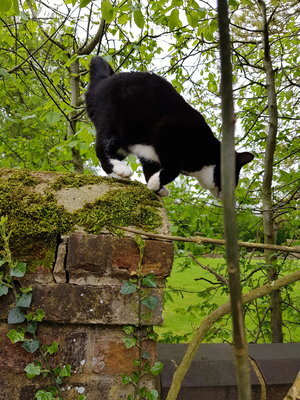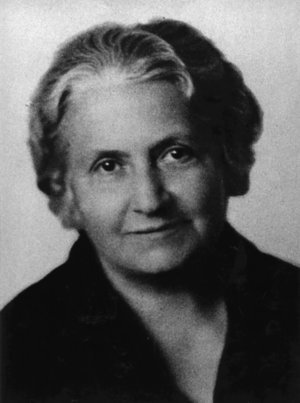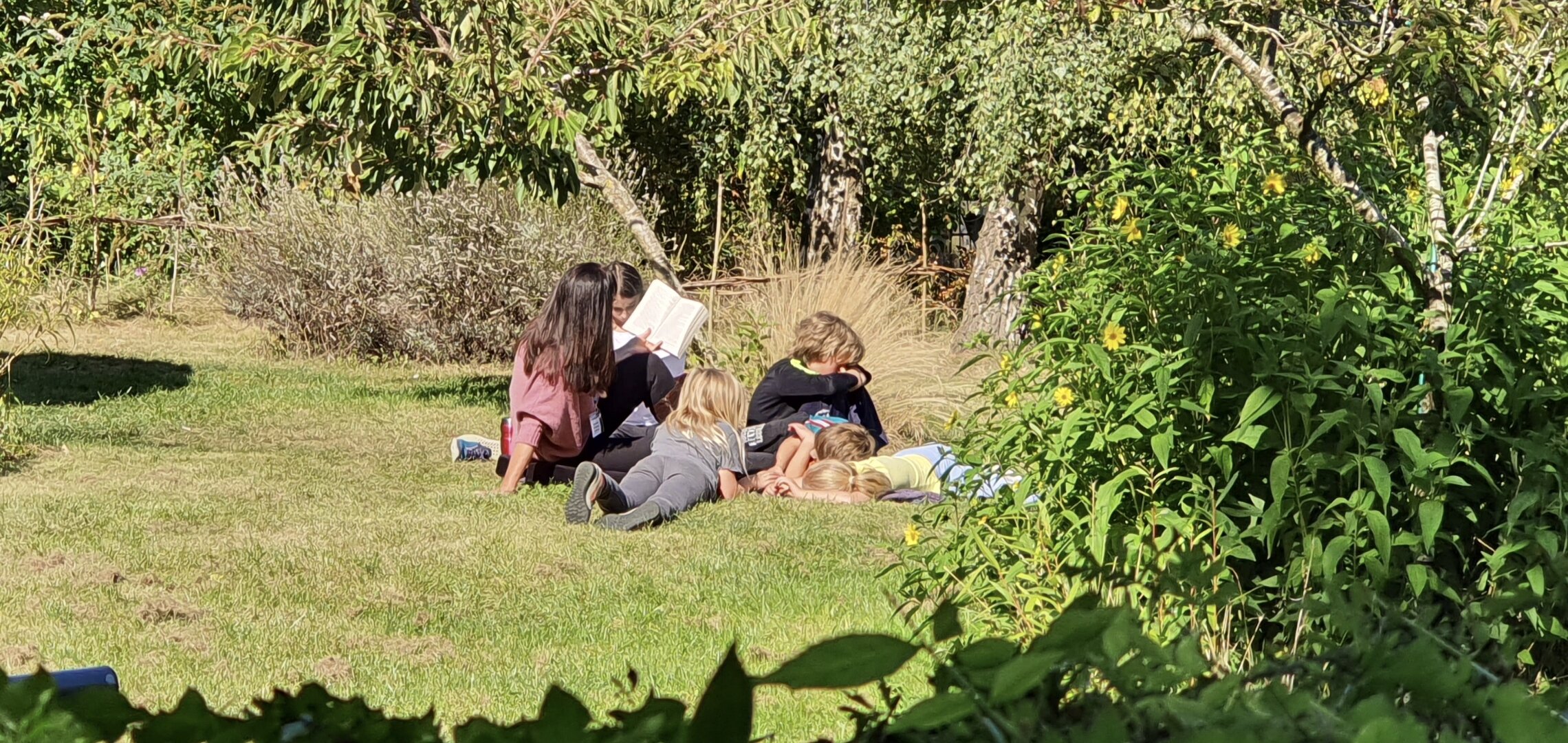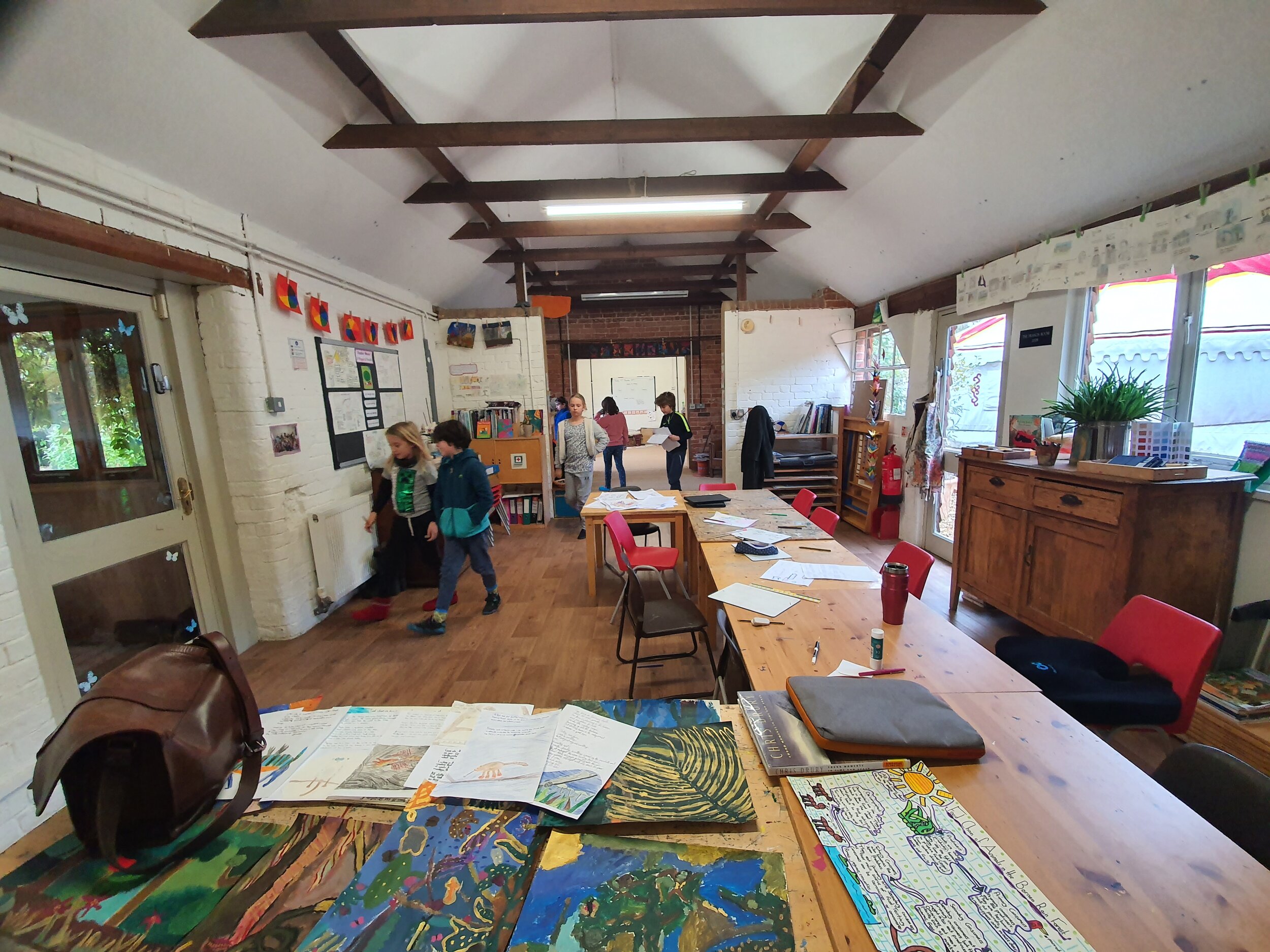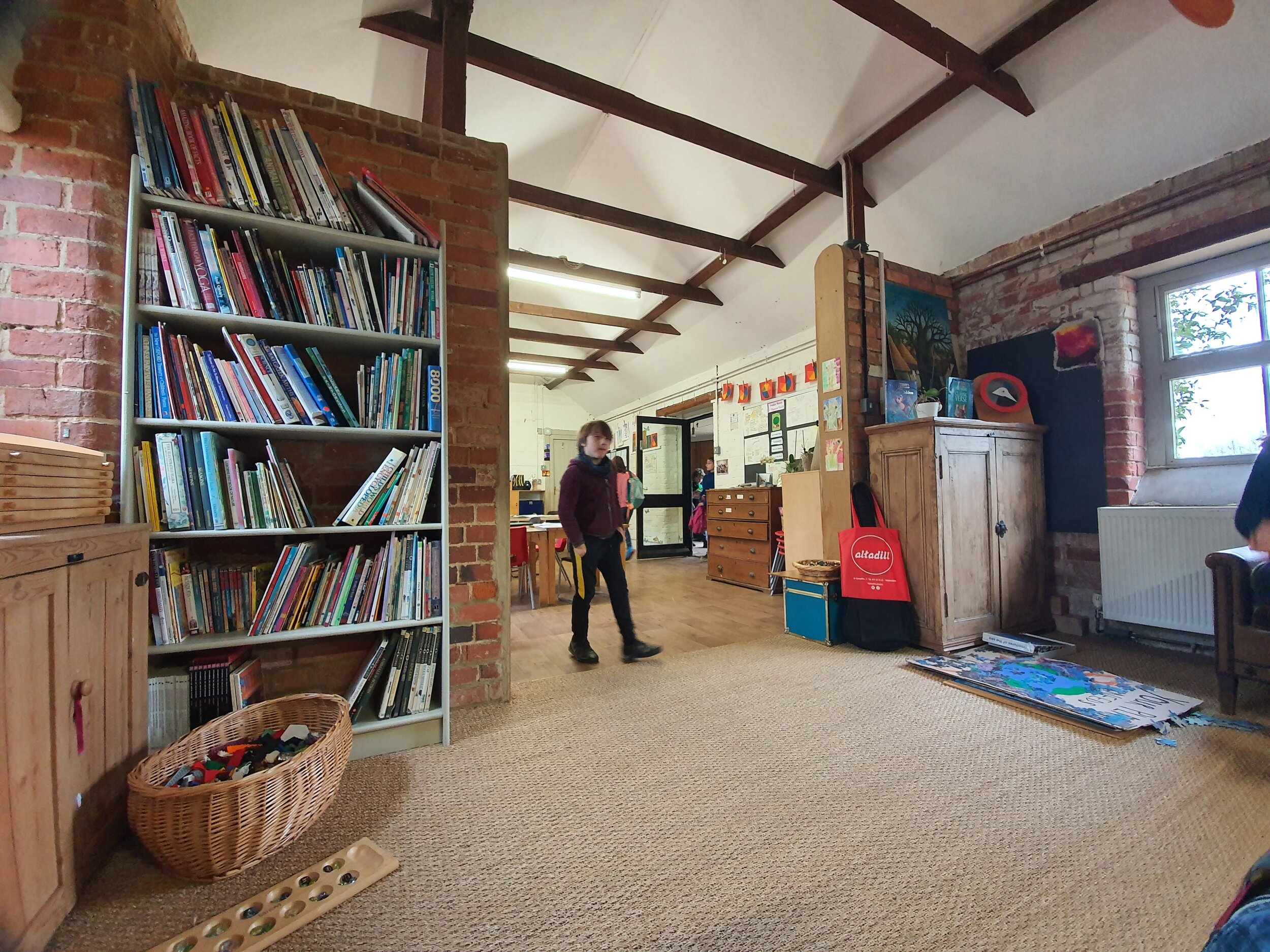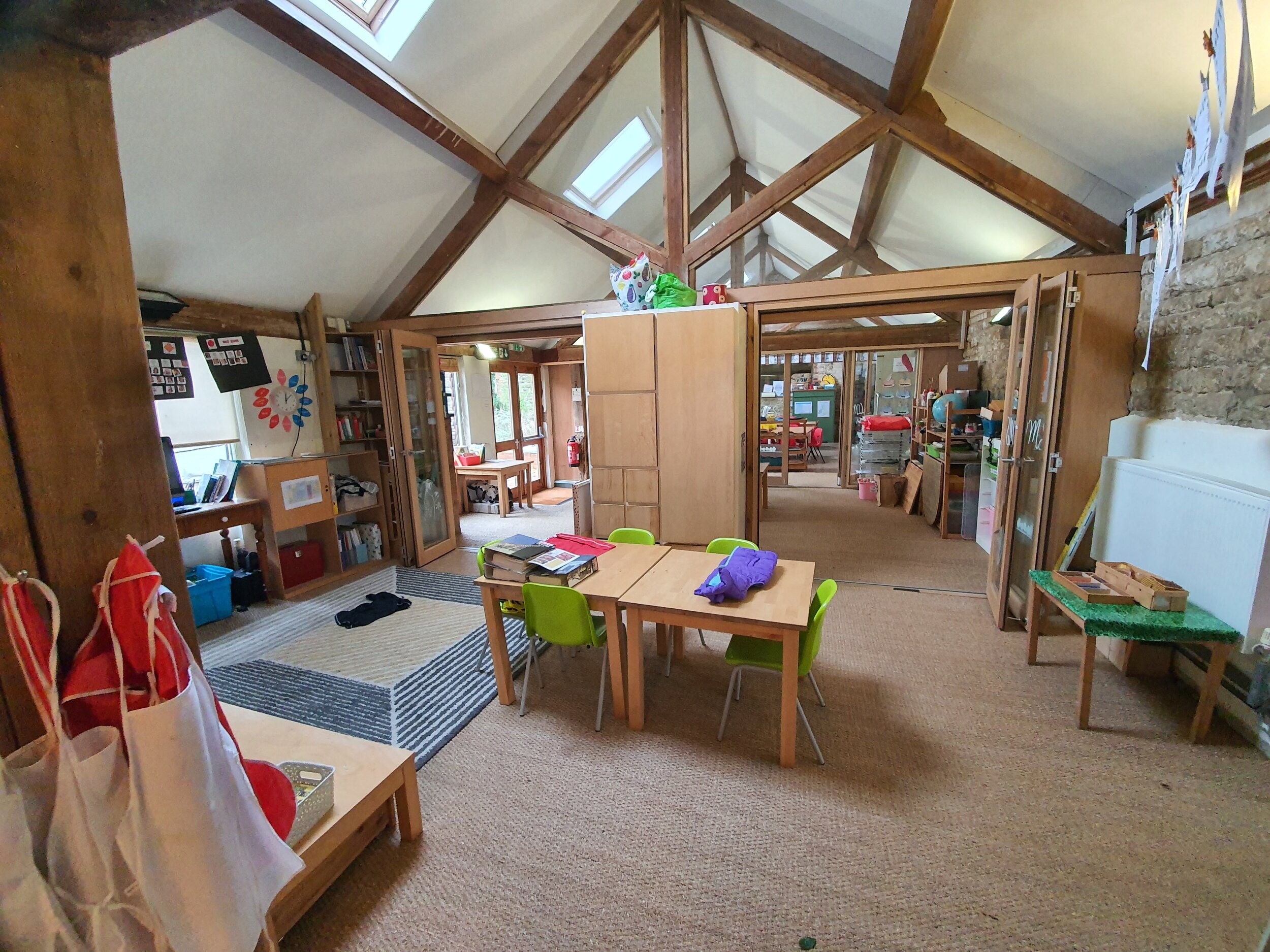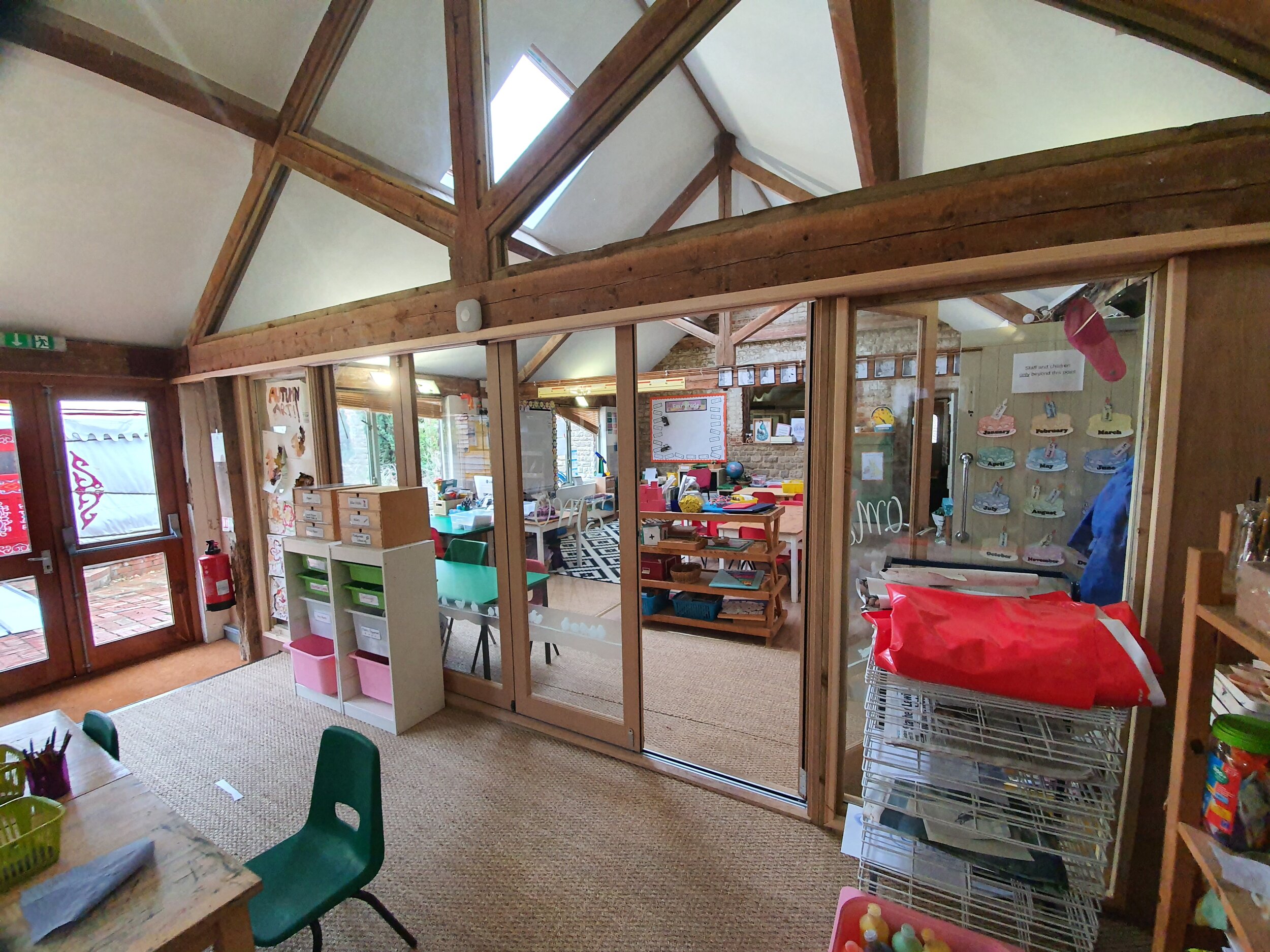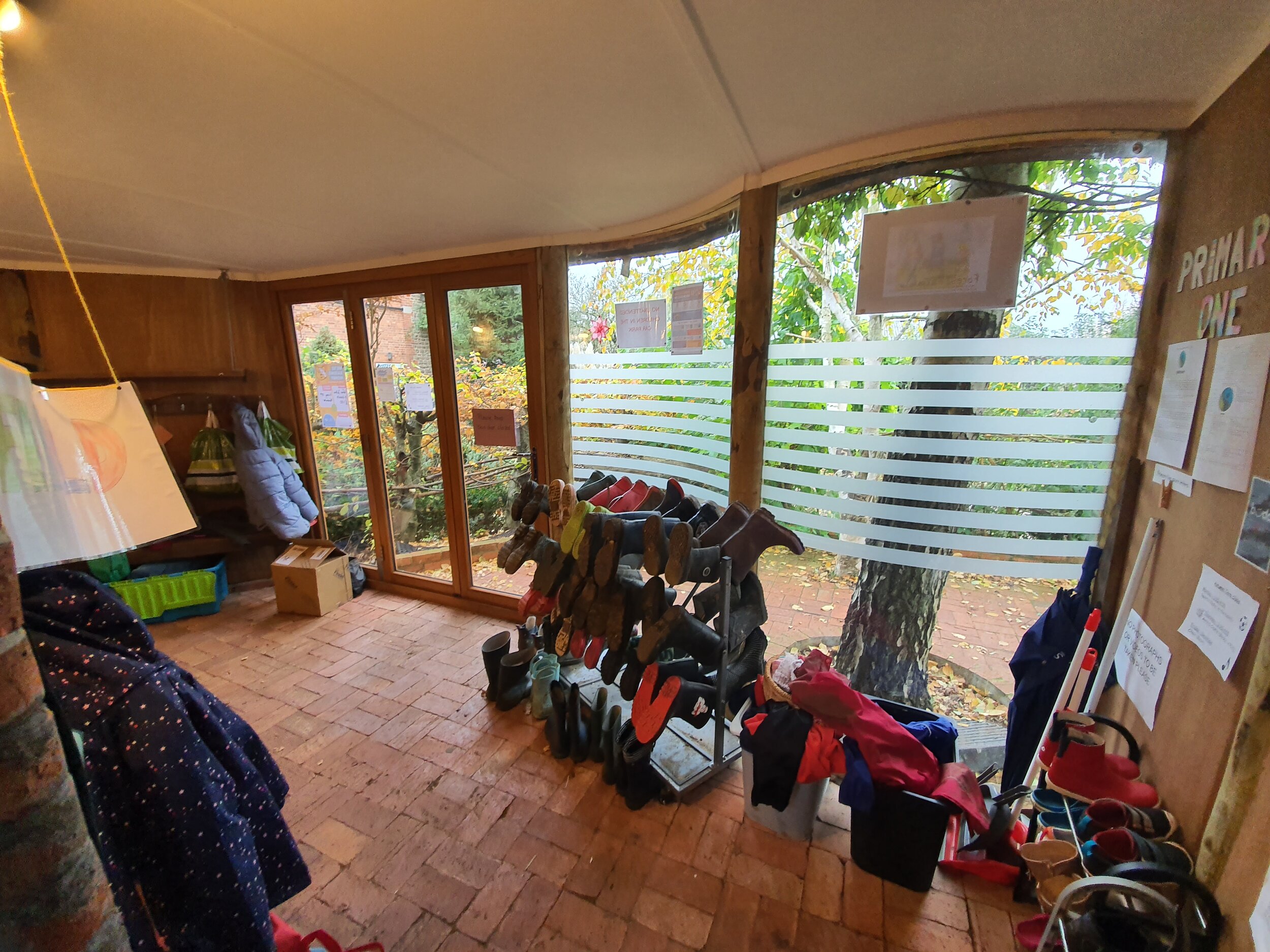“Every child is an individual, each with his or her own learning style. The primary environment at Forest Farm aims to adapt to every child in this way.”
“In our school we focus on understanding what motivates young people to learn and share their knowledge. We shape our learning environments to promote a ‘need to know’ and a ‘need to share’. This is a natural and modern extension of Montessori’s basic principal: to sustain learning situations that require young people to discover how to do things. This we believe is an essential ingredient for a modern school preparing young people for life in the modern world. Young people need to have a context for learning that is relevant to their lives - this essential need to know kick starts and sustains the motivation required to learn naturally. ”
The giant yurt - one of our communal / learning spaces
Essentials
Structure: There are currently two primary classes at Forest Farm that accommodate children aged 5 to 11 years.
Teachers: Each class has a qualified teacher and a teaching assistant to support the setting. There is a Special Educational Needs Co-Ordinator (SENDCo) for the primary classes to support children who need additional learning support.
Admission policy: All children are welcome, however places are limited for children who need additional specialist support as we need to carefully consider the extent of the overall abilities in a class. We therefore consider each child with additional needs on a case by case basis.
Children attend full time, Monday to Friday.
Bike riding in the wild flower meadows
When to join and induction: Induction involves short visits, taster sessions and dialogue between teachers and parents. Once you have applied for a place, we will contact you and make arrangements to introduce your child to the environment gently.
Booking a place: It is best to give us as much notice as possible. Depending on the term, spaces are limited. Try and let us know your requirements at least 3 terms in advance.
The Primary at Forest Farm
The ultimate aim in the Primary classes is that of enjoyment and fulfilment, leading to curiosity and a love of learning. We want children to enjoy their experience of learning in a non- pressurised environment where nurturing the emotional needs of the child comes first, before any substantial learning takes place. We want the children to have some say in what they do and how they learn, so that it is not just teacher led. Teaching staff are committed to, and experienced in, providing a classroom environment which enhances the learning opportunities of all pupils. This means that although some children may benefit from one-to-one support sessions, many will find that their needs can be met through small groups with personalised learning experiences.
The Primary classroom is a child centred environment set up the meet all the needs of the children currently in the class. Outside has acres of beautiful green space in which the children can explore and experience outdoor learning. Being outside is vital for the child’s physical and mental well being and brings a sense of calm which focuses the mind.
All the teaching staff have Qualified Teacher Status or are Montessori trained. All pupils follow a broad and balanced curriculum. We follow the National Curriculum in all subjects. Our Montessori philosophy is also built into the curriculum to follow the children’s interests and prepare the environment to meet their developmental cognitive, physical, social and emotional needs. All staff are free of strict teaching guidelines and so can provide an exciting and diverse education following their own curriculum maps in English and Literacy, Mathematics and Science which are taught and linked whenever possible to our topic. These include geography, history and creative Arts and these are studied through cross curricular project work.
Their environment is a nurturing one, with children's different individual learning styles being met. With the small class sizes and the individual approach, our aim is to promote confidence and self esteem in each child and find something they feel they are good at. The teacher is careful and sensitive to the child's way of working so as not to apply pressure or competition.
Children are encouraged to interact with their peers and with the advantage of two year groups in the class, this actively promotes cognitive as well as personal and social development by spending time and learning alongside older and younger children. One of the lovely things about mixed aged teaching is that it resembles more closely a natural family. Older children are keen to share their knowledge and skills with younger children, which reinforces their learning, and younger children are often eager to learn from their older classmates. There is much evidence that this can nurture and extend development in thinking skills, problem solving, vocabulary and other social competencies.
The curriculum is enriched by specialist teachers for Music, Drama, Spanish, Physical Education, Forest Schools and Computing to provide a curriculum that encourages cognitive growth, curiosity, creativity, a thirst for knowledge and an enjoyment of learning.
All primary pupils complete the GL Progress Test Assessments, twice each year, in September and in May. The 5-7 year olds complete them on paper in English and Maths, whereas the 7-11 year olds complete English, Maths and Science online. Parents are not shared into the results of these assessments, and they are used by teachers purely to inform planning.
Primary children also complete the NGST and NGRT each term to track their progress in reading and spelling
Forest Farm Primary Reading.
At Forest Farm we aim to provide all children with the skills to read fluently, accurately and with understanding. Above all, we want children to enjoy and aim to foster a love of reading that will last a lifetime. Reading is a vital skill that supports a child’s learning and progress across the whole curriculum. Learning to read is a personal process and at Forest Farm we recognise that not all children learn to read in the same way. It is for this reason we have adopted a mixed method approach to reading, aiming to give each child every chance of being a successful reader.
“The path of a reader is not a runway but more a hack through a forest, with individual twists and turns, entanglements and moments of surprise” (Holden, J. 2004)
Our peripatetic lessons during the school day with teaching specialists:
Spanish
Sports
Forest School, outdoor learning
Computer Studies
Drama and LAMDA
Music
Individual instruments according to demand
Eco schools-lunchtime club
Special Educational Needs and Disabilities (SEND)
Our aim at Forest Farm is to strive to ensure that all our children feel happy and safe and included. Everyone is valued, respected as an individual and encouraged to persevere, striving to achieve their full potential. All children receive an education that allows equality of opportunity and foster a love of learning. We have a strong SEND department and a coordinator for primary and the whole school. We focus on working to support pupil’s learning and working with them to develop strategies to remove any barriers which impede learning.
Linguistic diversity is valued and opportunities provided for children to develop and use their own language in their play and learning. Opportunities are provided for children to develop English in a meaningful context. For children who attend our nurseries where English is not their first language we pay special attention to supporting inclusivity and aid any language barriers as set out in our English as an additional language (EAL) policy
Pupil Involvement
Pupils at Forest Farm are actively encouraged to take responsibility for their own learning and ensure that they effectively use all resources and support available to them to aid success. Pupils are also encouraged to contribute their ideas and make informed decisions about their learning.
Parents have a critical role to play in their child's education. The school will work actively in partnership with parents to provide appropriate strategies to meet the pupil’s educational needs and encourage parents to play an active role in their child’s education.
Sports in Primary
Sports in the Primary are aimed to build the skills children need to be physically fit and well; to build confidence in their own bodies and healthy minds, and increase self-control and self-esteem. Each half term the focus is on a new sport or area of development. Both traditional sports and sports from around the world are combined throughout the year to introduce the children to a variety of sports and activities that each and every child may find enjoyment through. Our sports have a non-competitive focus, instead, the focus is on self-improvement and positive collegiate teamwork. Sports that children particularly enjoy on a more regular basis, such as football or gymnastics van be offered after school all year round. Occasionally throughout the year, children play as a team with other schools in friendly games of football or athletics.
Eco School
We endeavour to play our part in ‘Saving the Planet’. We are a Bronze Award Eco School and we have a council with members from each age group of the school. Each half term we focus on a topic to create a greener environment for the children. We focus on reducing plastic within the school and we created a wild flower meadow during the summer which attracts bees, butterflies and many other insects. We plant trees yearly and have over two thousand trees in our coppice wood where the children play and take part in Forest Schools. The coppice wood creates every opportunity for diverse wildlife.
Outdoor Learning and Forest School.
At Forest Farm we aim to spend at least 20% of the week learning outside. We believe the natural environment promotes good health, emotional well-being and a sense of peace. We have varied spaces, such as fruit growing areas, a greenhouse for planting, outdoor classroom areas with external tables and chairs, an adventure playground, the coppice wood and large open spaces too with willow domes as shade. There are footpaths around the school into the woods and open farmland.
We integrate Forest Schools into part of the curriculum. On a weekly basis children ‘go out’ and take part in Forest Schools. They create nature spaces, build dens and shelters and observe nature and the seasons, care for the environment, learn about the importance of looking after our flora and fauna and learn survival techniques.
There is no limit to the experiences and curiosities that outdoor environments and activities can arouse. Participants frequently discover potential, abilities and interests that surprise themselves and others. Safety codes provide clear boundaries and learning goals give clear direction, but Outdoor Learning draws in energy and inspiration from all around. 'Broadening horizons' is a common outcome.
Outdoor Learning is real learning
Not only does Outdoor Learning happen in the natural environments where participants can see, hear, touch and smell the real thing, it also happens in an arena where actions have real results and consequences. Outdoor Learning can help to bring many school subjects alive while also providing experiential opportunities for fulfilling the National Curriculum aim "to enable pupils to respond positively to opportunities, challenges and responsibilities, to manage risk and to cope with change and adversity." Source: DfES & QCA, The National Curriculum, 'Aims for the School Curriculum' 1999.
Forest School Ethos
Forest School is a time and a place where children are free. Free to run, hide, slide, climb, shout, get muddy, observe, build, explore, imagine, experiment, collaborate with friends or be alone. At Forest School you do something because YOU want to do it and we believe that if you have chosen to do something, what you learn will be much more meaningful than doing something because someone else has asked you to. Succeeding at something you have chosen to persevere, gives you motivation & concentration, confidence, resilience and self-esteem.
Outdoor play requires gross and fine motor skills, language and social skills, problem solving, numeracy and creative thinking. It strengthens the immune system, and through capturing all our senses helps us to observe, listen and be more connected with the world around us and with ourselves. This ‘time out’ is becoming increasingly essential for children today who have more and more demands made on their time.
The natural world is a rich environment in which to enjoy: bug spotting, tree climbing, den building, leaf id, fairy house building, willow weaving, beading from natural materials and pond dipping. In a safe environment, with a high teacher/child ratio, children learn how to work safely with ‘dangerous’ tools, like knives, loppers, axes, and mallets, build fires, cook stick bread, make soup and foraged tea. Through doing these ‘risky’ things, they learn to assess, prepare and take responsibility for themselves and those around them.
We believe that if our children have fun, feel comfortable and uplifted in nature, they will appreciate, care for and fight for it.
Our Forest School Leader, Sally-Ann Woodrow, is a Qualified Level Three Forest School Leader and a member of the Forest School Association (FSA). The FSA is the professional body and UK wide voice for Forest School, promoting best practice, cohesion and ‘quality Forest School for all’. Our sessions are guided by the Forest Schools Association principles, agreed in 2011.
Parents and OMS
Parent support is vital for the well-being of children and the school. We welcome parental contribution and parent interest in whatever is going on at school and in the classroom, as well as supporting children’s time at school. Children are able to show parents what they have been doing on a daily basis. Appointments can be made to talk to teachers after school hours and more formal parent teacher meetings are held twice a year. Parents receive a full written report at the end of the school year.
Regular events to include parents are :
Our End of Term winter performance with a drama or music focus.
Primary and Senior End of Year event in the summer - Drama/ Music.
Camping Night - held around the Summer Solstice.
Sports day - July.
Half termly Charity Cafe breakfasts from 8.30am-9.30am.
Regular Social Teas and occasional Open classrooms.
Ways to support your child’s progress and time at school:
Know the class timetable and what they need to bring to school, ie, sports kit, reading book, instrument for individual lesson, etc.
Read the class newsletters and diarise events happening in school.
Being punctual is important not to miss out on important information at the beginning of the day and for minimising disruption.
Be punctual at the end of the day for picking up. Children are tired at the end of the day and want to be greeted like all the other children and go home.
Support your child with reading at home. It is really important to read to them and encourage your children to read aloud to you until they reach at least senior school age.
Attend school events as often as possible.
Come in and do a special activity with the children. You may wish to read your favourite children’s story or tell them about a relevant topical experience or your interesting job.
Be positive about school with your child.
After school clubs for primary children
After School Club is available for Nursery and primary children on a daily basis until 5.30pm. The emphasis is on creative art and play.
Primary Clubs are available until 4pm Monday to Thursday: These are subject to change according to requirement but may include:
Lego
Art Club
Choir
Gardening
Craft Club
Free Play Fun
Create Holiday Club is available for Primary children up to the age of 11 and operates on all holidays except over the 3 week Christmas holiday.

